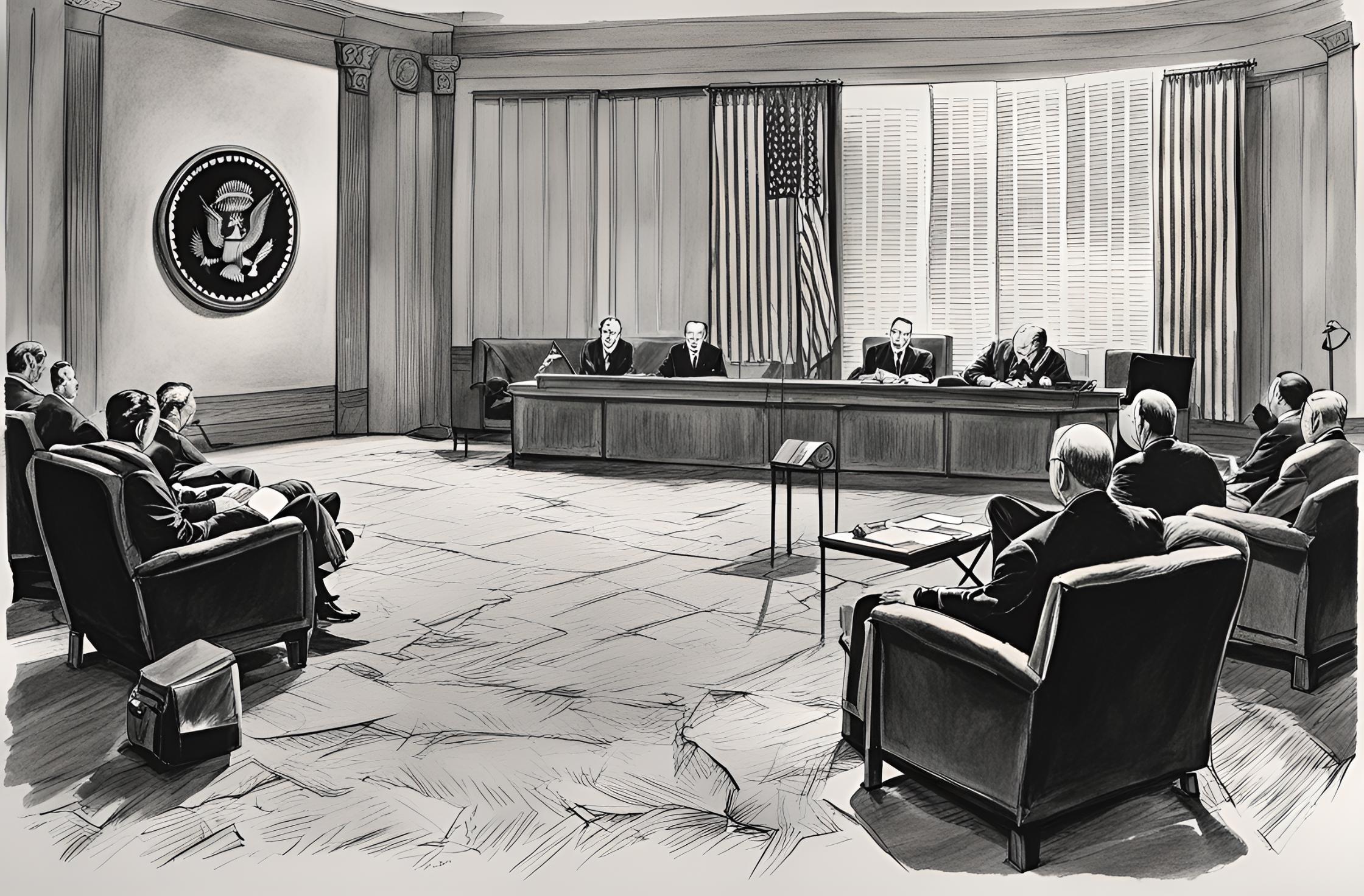Flashback to October 8
American History

1981
US President Ronald Reagan greets predecessors Jimmy Carter, Gerald R Ford, and Richard Nixon before sending them to Egypt for Anwar Sadat’s funeral
Read moreOn October 8, 1981, an exceptional event occurred in the annals of US history. US President Ronald Reagan greeted his predecessors; Jimmy Carter, Gerald R Ford, and Richard Nixon, before dispatching them to Egypt for Anwar Sadat’s funeral. This appearance of four US presidents convened with a singular intent, symbolizing the unity and coherence of American politics.
The late President Anwar Sadat of Egypt held a unique geopolitical significance, crucial enough to command the attention of four contemporary U.S Presidents. This signifies Sadat’s remarkable global standing, highlighting the momentous influence he wielded over world politics, especially his indelible contributions towards Middle East peace negotiations.
Navigating the dynamics of this historic event, Ronald Reagan, the 40th President of the United States, revealed his graciousness by warmly welcoming his predecessors at the White House. This display of humility and honor came despite their ideological divergences. His interaction with former presidents illuminated Reagan’s respect for the nation’s highest office, far exceeding mere political affiliations.
Jimmy Carter, the 39th President, also attended the sendoff. Uniquely, it was during Carter’s term that Sadat made his groundbreaking visit to Israel, setting the foundation of the Egypt-Israel Peace Treaty, signed at Camp David in 1978. Despite his recent electoral loss to Reagan in 1980, Carter’s inclusion in the envoy underscored his pivotal role in advancing Middle East peace.
Gerald R Ford, the 38th President, also shared a historically-rich relationship with Sadat. During Ford’s tenure, Sadat embarked on altering Egypt’s course, thereby dramatically shifting the Middle East’s geopolitical landscape. Through Sadat’s actions, Ford encountered unique diplomatic scenarios, which continue to inform our understanding of international relations.
Richard Nixon, the 37th President, known for his intricate foreign policy strategies, equally held deep regard for Sadat. With his dispatch to Sadat’s funeral, the political alliances and friendships that Nixon cultivated during his presidency came into greater focus, far beyond his infamous Watergate scandal.
The unity projected by the gathering and sending-off of these esteemed leaders underscored America’s commitment to upholding international relations. The event became a testament to the persistent endeavors of preserving peace in the Middle East. This intervention by US Presidents replicated a shared commitment to peace, projecting the message that despite their political differences, they were unified on matters of international significance like Anwar Sadat’s funeral.
Anwar Sadat, the third President of Egypt, was a controversial leader. Known for his daring diplomatic moves, his efforts towards establishing peace between Egypt and Israel earned him, along with Israeli Premier Menachem Begin, the 1978 Nobel Peace Prize. His assassination on October 6, 1981, sent ripples through global politics, marking an end to an era of paradigm-shifting leadership in the Middle East.
this event on October 8, 1981, continues to be an essential landmark in US and international history. It symbolizes a powerful message of unity, mutual respect and the unwavering commitment of successive American leaders towards fulfilling their global responsibilities. The presence of these four towering figures in American political history at Anwar Sadat’s funeral illustrates the enduring relevance of Sadat’s legacy and the robust, ongoing American engagement in the Middle East. Their collective attendance remains a tribute to Anwar Sadat’s significant role in reshaping global politics.
We strive for accuracy. If you see something that doesn't look right, click here to contact us!
Sponsored Content

US President Harry Truman…
On October 8, 1945,…

Great Chicago Fire
Experience the tragic history…

US President Ronald Reagan…
On October 8, 1981,…

